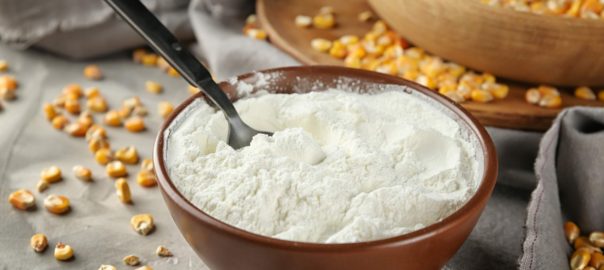Corn is one of the most highly genetically modified (GM) ingredients in the United States. Because of the challenges that genetic modification presents for our health and for the environment, I encourage people to eat organic corn. This also helps to avoid the high levels of pesticides and glyphosate used in growing the crop. The ability to use these chemicals are the primary reason for the genetic modification in the first place.
Varieties of corn
There are many different forms of corn. When eating fresh, frozen or canned, it is sweet corn which only represents approximately 1% of all the corn we grow in the United States. Field corn, sometimes referred to as dent corn, is the most common variety grown in the U.S. It represents nearly 60% of the entire corn crop. This variety is used for ethanol and livestock feed.
Other uses for corn include corn flour, corn starch, corn syrup and in the confectionary business. Popcorn is a separate variety. According to the Popcorn Board, the average American eats 42 quarts per year for a total consumption of 13 billion quarts.
Corn is also used in the textile industry and as a biodegradable plastic.
On the label
Corn by itself is easy to identify in foods or on the label. The challenge is that it can be turned into a rather startling variety of ingredients. These ingredients make an appearance in nearly every single food category at the grocery store. This is problematic for the nearly 10 million people in the U.S. diagnosed with an allergy to corn.
For those trying to avoid it, whether due to allergies or a desire to avoid GM contamination, it's not always easy to know which ingredients got their start from corn. If you're looking to avoid GM products the easiest way is to choose either organic or GMO Project Verified products. In the case of a food sensitivity or allergy use this list as a resource to help you know which products to avoid.
Corn-based ingredients
- Ascorbic Acid - also sometimes listed as vitamin C
- Baking Powder - this may contain cornstarch
- Brown Sugar - made from white sugar with caramel coloring added
- Calcium Citrate - also known as 'calcium salt of citric acid'
- Caramel - coloring agent frequently used in soft drinks. Can be made from cane sugar but most commonly made from corn; a known carcinogen
- Cellulose - a form of plant fiber (note: this ingredient can also be made from wood)
- Citrate - this sour flavor enhancer comes in several different forms: Calcium Citrate, Magnesium Citrate, Potassium Citrate, Sodium Citrate, etc.
- Citric Acid - made by adding the mold Aspergillus niger to a base of corn steep liquor, molasses, hydrolyzed corn starch, or other cheap sweet solutions
- Corn
- Corn Meal – as well as being used for cooking, cornmeal can be used for dusting baked items
- Corn Starch – may be found in OTC tablets
- Corn Syrup - may be found in liquid OTC medications such as cough syrup
- Decyl Glucoside - often found in shampoo and other personal care products
- Dextrin, Maltodextrin – used as a thickening agent for condiments, frozen confections, and other foods
- Dextrose (glucose) – found in sweets, may also be present in processed meats
- Ferrous Gluconate - an ingredient found in black olives
- Flavoring - Artificial or "Natural Flavors" may be corn-based
- Golden Syrup
- Honey - HFCS is sometimes fed to bees causing their honey to then have corn in it
- Hydrolyzed Vegetable Protein (HVP)
- Iodized Salt - Dextrose may be added to iodized salt to help stabilize the iodine
- Lactic Acid
- Magnesium Citrate - Magnesium salt of citric acid
- Magnesium Stearate
- Malic Acid
- Malt/Malt Flavoring
- Maltitol - a sugar alcohol made by hydrogenating maltose
- Maltodextrin
- Maltose
- Mannitol - This sugar alcohol is often blended with corn-based sugars
- Methyl Gluceth - a cosmetic emollient
- Modified Food Starch
- Monosodium Glutamate (MSG) - MSG can be made from corn
- Polydextrose
- Polysorbates (i.e. Polysorbate 80)
- Potassium Citrate
- Powdered Sugar - may contain cornstarch
- Saccharin
- Sodium Citrate
- Sodium Erythorbate - may be made from beets, corn, or sugar cane
- Sodium Starch Glycolate - may be made from corn, rice, or potatoes
- Sorbitan - made by dehydrating sorbitol
- Sorbitan Monostearate - may be found in various types of yeast (baking, brewing)
- Sorbitol – this sugar alcohol often appears in diet candies or gum, can also be in oral care products
- Starch – unless otherwise specified (such as potato starch) this is probably cornstarch
- Sucralose - Splenda is often made with dextrose or maltodextrin
- Sweet’N Low - made with dextrin
- Vanilla Extract – may be made with corn syrup
- Vinegar, Distilled White
- Xanthan Gum - often grown on a base of corn or corn sugar
- Xylitol - can be made from birch or corn, in the US it is frequently corn
- Zein – used in time-release medications
More Food Allergy Info
All About Eggs
Do You Have Oral Allergy Syndrome?
Food Intolerance Testing


